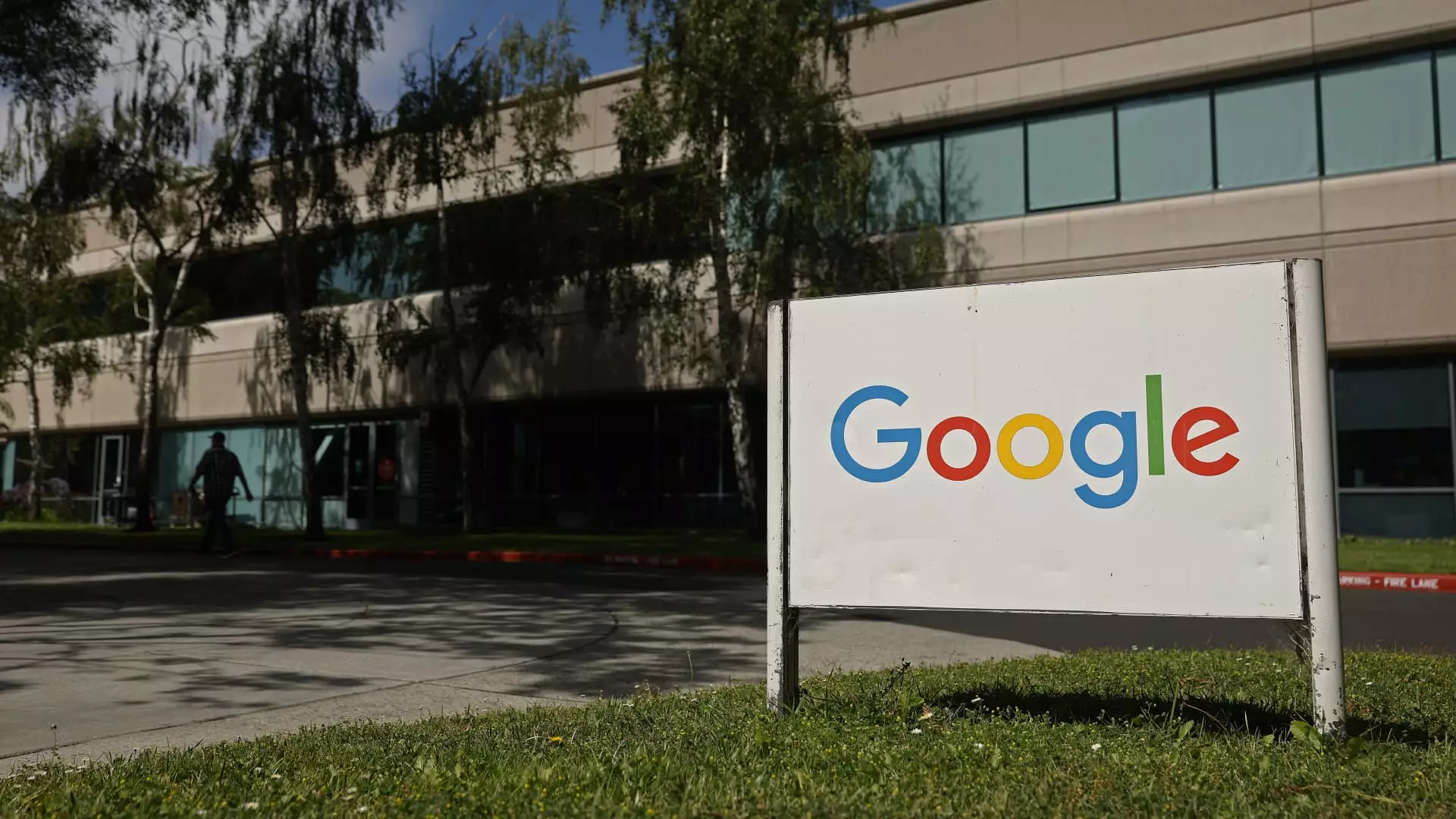For years, skeptics have claimed that artificial intelligence had hit its peak, a fleeting technological fad with limited future potential. Yet, recent developments suggest just the opposite: the AI revolution is only gathering steam, fueled by the relentless ambitions of industry giants like Alphabet. The company’s impressive earnings report serves as a stark rebuttal to the notion that the AI trade has plateaued. Instead*, Alphabet’s bold strategic moves reveal an industry hell-bent on maintaining its innovation momentum, willing to pour unprecedented capital into a future that many still regard with skepticism. This relentless pursuit of AI dominance underscores an important reality: the so-called “end of AI hype” is a myth, replaced by an era of aggressive, confident investment that is reshaping the tech landscape.
Revisiting Capital Expenditure: A Signal of Confidence and Intent
One of the most revealing aspects of Alphabet’s recent financial disclosures is its decision to raise capital expenditures from an initial $75 billion to $85 billion — a staggering commitment that underscores a central truth: Alphabet views AI as the future of its core business. Critics may argue that such high spending is risky or overhyped, but this perspective ignores the strategic necessity of outpacing competitors. This investment signals an understanding that AI is not a side project but the very backbone of the next wave of digital innovation. Amid supply chain constraints and rising competition, Alphabet’s willingness to increase capital expenditure demonstrates an unwavering confidence that the demand for AI-driven cloud services, search algorithms, and machine learning platforms will only grow stronger. The company is not just betting on AI; it’s building a fortress of technological dominance that leaves rivals in its wake.
The AI Arms Race: A New Era of Competitive Innovation
Industry analysts recognize that Alphabet’s investments are not isolated but part of a broader “arms race” among the major tech players, colloquially known as the “Mag 7.” This competition fuels a cycle of escalating spending, technological breakthroughs, and market expansion. Companies like Nvidia, Broadcom, and AMD are also responding robustly, with their stocks soaring in tandem with Alphabet’s bullish outlook. This pattern isn’t just about short-term gains—it’s about establishing long-term leadership by setting the pace in AI innovation. The widespread optimism derived from Alphabet’s results suggests that the race is only entering its first innings; the real momentum will likely unfold over the next few years as foundational AI products like Gemini and GenAI-enabled tools become increasingly integral to everyday digital experiences.
The Market’s Reaction: A Signal of Changing Dynamics
Wall Street’s response to Alphabet’s earnings reflects a broader recognition of the company’s strategic positioning. Rather than being a sign of overvaluation or a bubble nearing burst, the market interprets Alphabet’s aggressive AI investments as a sign of resilience amid uncertainty. Leading analysts from institutions like Bernstein, UBS, and Morgan Stanley emphasize that Alphabet’s robust cloud and search performance point to a sustainable growth trajectory rooted in AI. Notably, Equally important is the understanding that these developments impact the entire tech supply chain; hardware providers like TSMC are already experiencing increased demand, highlighting how Alphabet’s ambitions ripple outward across industries. The message is clear: the AI expansion is not a passing trend but a sustained movement with serious market implications.
The Political and Economic Implications: A Center-Right Perspective
From a center-right economic stance, Alphabet’s approach exemplifies the importance of strategic growth and innovation-driven capitalism. By channeling significant resources into AI, the company exemplifies the kind of proactive investment that fosters regional competitiveness, job creation, and technological sovereignty. Critics on the far left often paint technological giants as monopolistic culprits, but this view overlooks the vital role that large-cap companies play in spearheading progress. Alphabet’s rapid development and deployment of AI tools bolster our global digital infrastructure while maintaining a competitive edge that benefits consumers and businesses alike. This behavior aligns with a belief in free-market principles—if companies are allowed to innovate and invest heavily, they will lead to a more prosperous and resilient economy, provided that regulatory frameworks remain balanced and fair.
The Road Ahead: More Innovation, More Competition
Looking forward, it is evident that Alphabet’s current trajectory is only the beginning. The company’s multi-billion-dollar investments serve as a catalyst, not just for its own growth, but for the entire tech ecosystem. The competitive environment remains fierce, and the race for AI supremacy will undoubtedly deepen. While some critics worry about overreach and unsustainable spending, the pragmatic observer recognizes that in today’s digital age, leadership hinges on continuous innovation. Alphabet’s aggressive stance underscores an essential truth: in the world of AI, standing still is equivalent to falling behind. The real challenge lies in balancing visionary investments with practical, sustainable growth—something the company appears poised to master, despite the inevitable challenges and market volatility ahead.

